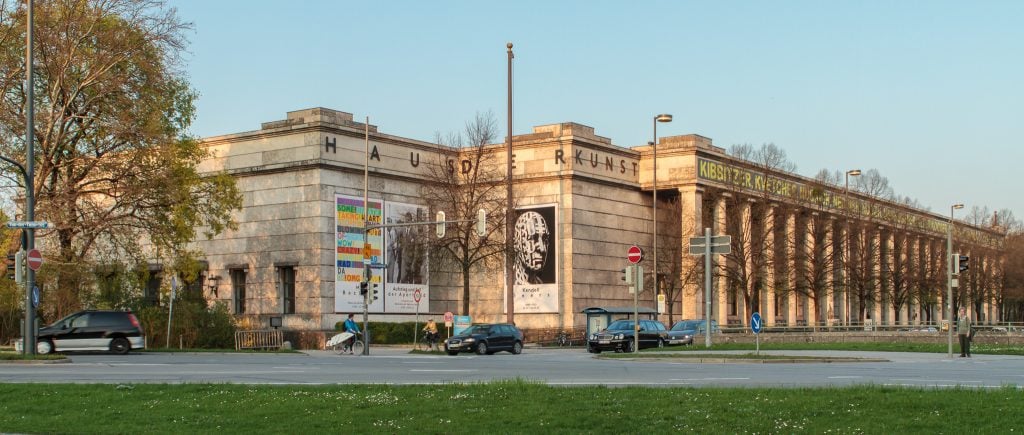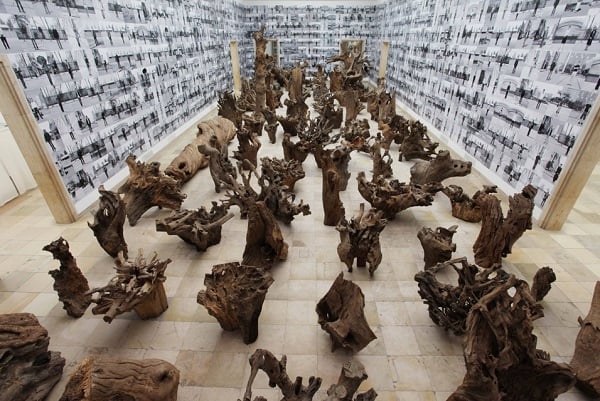Art World
Haus der Kunst Faces Funding Crisis
Are Venice Biennale preparations spreading Okwui Enwezor too thin?

Are Venice Biennale preparations spreading Okwui Enwezor too thin?

Alexander Forbes

Financial troubles at Munich’s critically acclaimed Haus der Kunst are more grave than first thought, according to an article by the dpa published in Art. Things had already began to look shaky in June when the museum’s main sponsor, the Schörghuber-Stiftung, announced that they would end their support. Previously, the foundation had given €500,000 ($680,000) annually to the institution. Now, they plan to reroute those funds to social assistance programs.
According to the report, groups even closer to the Haus der Kunst are torn about their involvement with the institution. A recent meeting of the Friends of the Haus der Kunst, a group of private individuals that assists in funding the museum and was expected to give a fresh influx of cash, reportedly ended in discord.
Beginning in 2012, the Bavarian state already had to step in to close a €534,000 ($726,700) gap in the museum’s funding, according to a previous report in the Süddeutsche Zeitung. That gap looks increasingly to be more of a chasm.
Some have sought to place blame with the institution’s current director, Okwui Enwezor, who took over in 2011. His selection was seen as a move to widen the house’s purview to increasingly non-Western artistic positions. Yet now, some supporters are taking an about-face and calling for more Munich-based artists to be represented in the exhibition program.
The dpa article further cites Enwezor’s role as artistic director of the 2015 Venice Biennale as a distraction from his job in Munich. For its part, the arts ministry that oversees the organization said they’re all for Enwezor taking on the Biennale and that it will only serve to increase the museum’s international profile.

Ai Weiwei, Soft Ground (2009), Rooted Upon (2009), and Fairytale (2007). Installation at Haus der Kunst.
Photo: © Ai Weiwei
Many have longingly recalled the Haus der Kunst’s days with now Tate Modern director Chris Dercon at the helm, when blockbuster retrospectives of Ai Weiwei or Andreas Gursky raked in crowds and cash. What Enwezor has tried to accomplish is a more subtle, intellectual, and research-based program, starting with a year-long mining of the museum’s fraught Nazi past and since with a deeper research engagement with Enwezor’s non-Western wheel-house.
Funders Turn Their Support
At the same time, funders both public and private have turned their support towards more quickly actionable and viewer-friendly displays, backing growth in empirically quantifiable terms rather than depth.
Is the museum in mortal danger? It’s doubtful. Due to both the institution’s history and its position as southern Germany’s main stage for temporary exhibitions of contemporary art, some solution will be reached.
The report notes that among the house’s revenue streams, the ever-popular P1 nightclub continues to pay the rent in spades courtesy of well-heeled Münchener’s persistent appetite for champagne. Whether those tastes can be turned towards a quieter form of contemporary art or if the tiller will be pulled in the populist direction, remains to be seen.